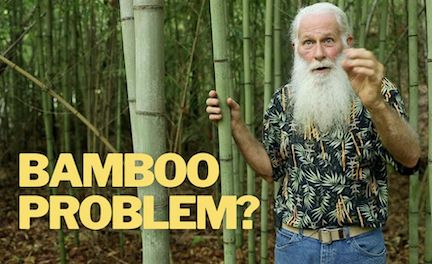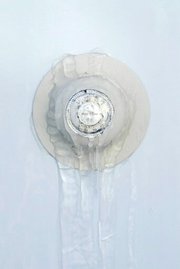The Plateau of Latent Potential
Author and self-help guru, James Clear, has this to say about building good habits (and the frustrations that can come in the process):
Imagine that you have an ice cube sitting on the table in front of you. The room is cold and you can see your breath. It is currently twenty-five degrees. Ever so slowly, the room begins to heat up. Twenty-six degrees. Twenty-seven. Twenty-eight. The ice cube is still sitting on the table in front of you. Twenty-nine degrees. Thirty. Thirty-one. Still, nothing has happened. Then, thirty-two degrees. The ice begins to melt. A one-degree shift, seemingly no different from the temperature increases before it, has unlocked a huge change. Breakthrough moments are often the result of many previous actions, which build up the potential required to unleash a major change. This pattern shows up everywhere. Cancer spends 80 percent of its life undetectable, then takes over the body in months. Bamboo can barely be seen for the first five years as it builds extensive root systems underground before exploding ninety feet into the air within six weeks. Similarly, habits often appear to make no difference until you cross a critical threshold and unlock a new level of performance.

The time between our first efforts to developed a new, healthy habit or spiritual discipline, and the time when we feel we've finally attained a measure of success, can seem interminable. It is in this time of "try and try again" that many of us simply give up. This is what Clear calls The Valley of Dissappointment.
You expect to make progress in a linear fashion and it’s frustrating how ineffective changes can seem during the first days, weeks, and even months. It doesn’t feel like you are going anywhere. It’s a hallmark of any compounding process: the most powerful outcomes are delayed. This is one of the core reasons why it is so hard to build habits that last. People make a few small changes, fail to see a tangible result, and decide to stop. You think, “I’ve been running every day for a month, so why can’t I see any change in my body?” Once this kind of thinking takes over, it’s easy to let good habits fall by the wayside. But in order to make a meaningful difference, habits need to persist long enough to break through this plateau—what I call the Plateau of Latent Potential.
The Plateau of Latent Potential ... what a concept! Instead of a mountaintop, you only see a dead, dry plateau. But this is the time to resolve to stay in the struggle! Why?
Complaining about not achieving success despite working hard is like complaining about an ice cube not melting when you heated it from twenty-five to thirty-one degrees. Your work was not wasted; it is just being stored. All the action happens at thirty-two degrees. When you finally break through the Plateau of Latent Potential, people will call it an overnight success. The outside world only sees the most dramatic event rather than all that preceded it. But you know that it’s the work you did long ago —when it seemed that you weren’t making any progress—that makes the jump today possible.
It's been accurately said that spiritual growth is not a sprint, but a marathon. God calls us to "put off" old ways and habits, and "put on" new ones instead (Ephesians 4:22-24). It is a long and arduous process, given to much frustration and dissapointment. But we are called to "not grow weary" in our efforts (Galatians 6:9).
Spiritual growth, health, and effectiveness are all waiting for us (regardless of how it is expressed through our personal spiritual gifts and abilities). But to attain it, we must not give up hope and endurance atop the Plateua of Potential and risk slipping into the Valley of Dissapointment.
Stay strong. Growth and spiritual maturity is NOT beyond your grasp. Like Paul, we must resolve to "press on toward the goal for the prize of the upward call of God in Christ Jesus" (Philippians 3:14, ESV).
As James Clear concludes, "Change can take years—before it happens all at once."
"Therefore, since we are surrounded by such a huge crowd of witnesses to the life of faith, let us strip off every weight that slows us down, especially the sin that so easily trips us up. And let us run with endurance the race God has set before us" (Hebrews 12:1, NLT).
The Creeping Influence of Bad Habits
(The following illustration has applicatoin for both "bad" habits and "good" habits alike. As such, this illustration will appear in the database twice, with alternative applications dealing with both types of habits.)
Bad habits can kind of creep up on you. You're fine. You're handling them. Until ... you're not.
Imagine that you have an ice cube sitting on the table in front of you. The room is cold and you can see your breath. It is currently twenty-five degrees. Ever so slowly, the room begins to heat up. Twenty-six degrees. Twenty-seven. Twenty-eight. The ice cube is still sitting on the table in front of you. Twenty-nine degrees. Thirty. Thirty-one. Still, nothing has happened. Then, thirty-two degrees. The ice begins to melt. A one-degree shift, seemingly no different from the temperature increases before it, has unlocked a huge change. [Effects] are often the result of many previous actions, which build up ... unleash[ing] a major change. This pattern shows up everywhere. Cancer spends 80 percent of its life undetectable, then takes over the body in months. Bamboo can barely be seen for the first five years as it builds extensive root systems underground before exploding ninety feet into the air within six weeks.

Bad habits are a lot like those stealthy bamboo shoots. They seem to be nothing to be worried about. They don't seem to be having any significant impact on your life or well being. Until one day, you can't keep them underground any longer. The negative impacts burst through the surface, and bam! Suddnely you have a 50 foot tall bamboo stalk casting shade over your entire existence.
Don't be duped. Those small, bad habits can turn into serious problems quickly. That is why we are cautioned by Scripture to take mastery over our attitudes and action before they take mastery over us.
"All things are lawful for me, but not all things are helpful. All things are lawful for me, but I will not be dominated by anything" (1 Corinthians 6:12, ESV).
"Do not be deceived: God is not mocked, for whatever one sows, that will he also reap. For the one who sows to his own flesh will from the flesh reap corruption, but the one who sows to the Spirit will from the Spirit reap eternal life. And let us not grow weary of doing good, for in due season we will reap, if we do not give up" (Galatians 6:7-9, ESV).
Are You Hardcore?
Katherine Martinko, with Tree Hugger, writes:
You've probably heard Nietzsche's famous phrase, "What doesn't kill you makes you stronger." The underlying message is that difficulties can be important growth experiences; they fortify us for the future, make us more resilient and resourceful. The phrase came to mind when I was reading an article by financial independence (FI) blogger Tanja Hester, a.k.a. Ms. Our Next Life. In it, she asks, "What's your 'selectively hardcore'?"
[W]hat Hester's talking about is the idea that sometimes it's valuable to have one carefully-chosen lifestyle habit that may be viewed as 'hardcore' by the rest of the world, but is meaningful to you.
You might not be hardcore in the other things you do, but having that one quirk teaches you important lessons and offers perspective.
Hester's own "selectively hardcore" is turning down the indoor heat to 55 degrees Fahrenheit (13 degrees Celsius), cold enough to solidify the dish detergent and to require a hot water bottle in bed at night. Being a finance blogger, she has obviously calculated the savings (approx. $250/mth x 6 cold months = $1,500/year). She says that she and her husband could afford to turn up the heat, but they don't because "it's important to do one thing consistently that tests you."
What are these benefits that warrant shivering in one's home? Hester writes (expanding on each of these points in greater detail in her original article):
- We're stronger than we think.
- Pain is temporary.
- It's always possible to learn new things or embrace new experiences.
- Comfort is a privilege.
- Gratitude is something you can feel.
"What began as a knee-jerk financial reaction has turned into this wise teacher, teaching us about life, ourselves, and not really about money at all. But we wouldn't have learned these lessons -- and certainly not felt them in our bones -- if we hadn't stuck with this stubborn idea consistently every single winter."

If Christianity has a hardcore quirk, it's found in Jesus' words, “Love your enemies.” What could possibly be more "hardcore" than that?
Yet this command should be profoundly meaningful to every Christian. After all, isn't this how God responded to us in our rebellion? Despite our sin (acts of rebellion against God), Christ died for us. Though we rejected Him, He gave everything for us. And then He calls us to love others with the same love. A love that reaches out to its enemies.
Indeed, what begins as a totally counterintuitive act can turn into a wise teacher, teaching us a lot about ourselves. Like how empty we are when it comes to real love and how much we need God's help if we are to love others the way He loves us.
“You have heard that it was said, ‘Love your neighbor and hate your enemy.’ But I tell you, love your enemies and pray for those who persecute you, that you may be children of your Father in heaven. He causes his sun to rise on the evil and the good, and sends rain on the righteous and the unrighteous. If you love those who love you, what reward will you get? Are not even the tax collectors doing that? And if you greet only your own people, what are you doing more than others? Do not even pagans do that? Be perfect, therefore, as your heavenly Father is perfect” (Matthew 5:43-48).
"But God demonstrates his own love for us in this: While we were still sinners, Christ died for us" (Romans 5:8).